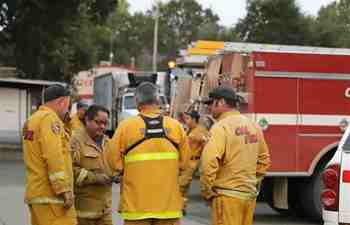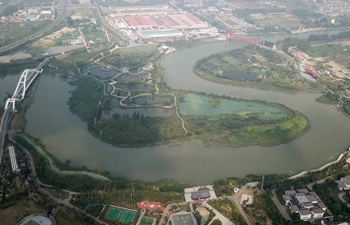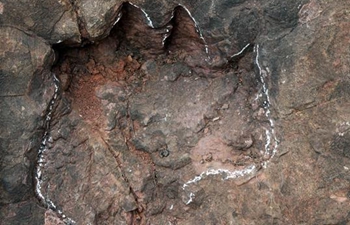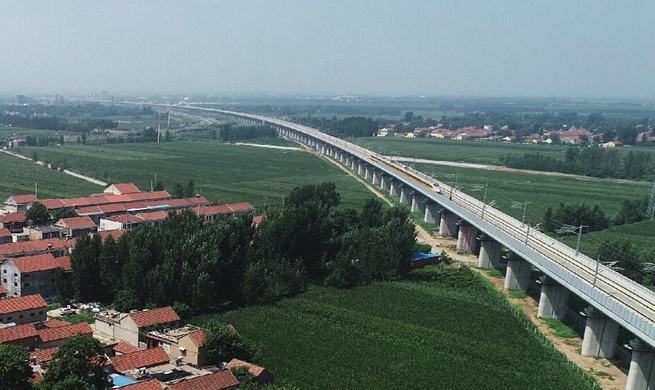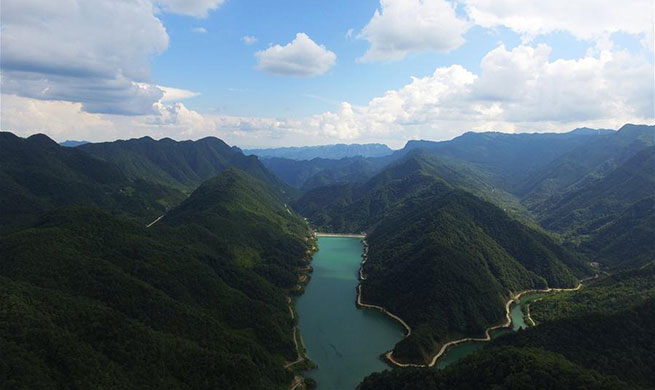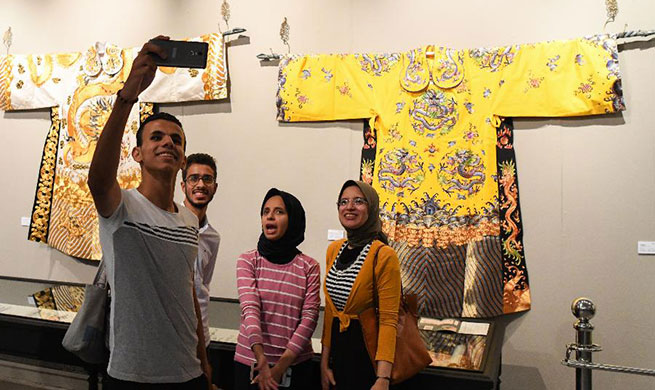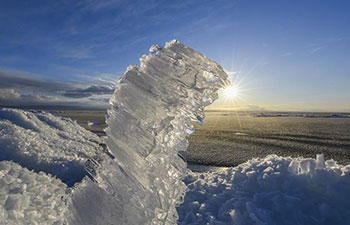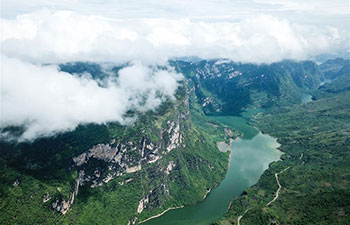by Nick Kolyohin
JERUSALEM, Aug. 11 (Xinhua) -- Israel will stop using coal and as a result stop producing coal ash at its power stations by the years 2025-2030, according to Israeli Ministry of Environmental Protection.
Ministry of Environmental Protection succeeded last week to promote governmental decision to close four out of eight coal units for electricity generation at Israel's power stations by the summer of 2022.
These four coal units at power stations, according to the Ministry of Environment, are responsible for one quarter of all air pollution in Israel. The pollution ratio generated by coal is up to 1,000 times more than pollution from natural gas.
Yuval Laster, director of Policy and Strategy Division at Israeli Ministry of Environmental Protection, told Xinhua that all the remaining coal units would be closed by 2025-2030 mostly because of environmental reasons.
Laster said in an interview with Xinhua that the National Coal Ash Board (NCAB) would not exist any more because its work to find alternative use to coal ash will not be necessary anymore.
Laster added that even today the cement and concrete industries demand much more coal ash than it produces, so the work of NCAB to find by force alternative uses to it is needless.
Coal ash is disposal remaining after the power station burns coal to produce electricity, in many countries, this is a compound used for various industrial purposes.
Israel has begun mass use of coal for generating electricity during the 1980s, when there were not environmental awareness among public, nor the government or the industry cared about the environment.
Besides the massive air pollution created during the burning of the coal, its remains, the coal ash was thrown into the Mediterranean, and this polluting practice stopped just during the 1990s.
After more than a decade of polluting the sea with coal ash, Israel recognized that it was a violation of the Barcelona Convention for protection of the Mediterranean Sea against pollution.
Now it was time to decide what to do with growing amounts of coal ash accumulating at the backyards of the Israeli national electric Corporation' power plants.
For that purpose, the Israeli government established in 1993 the National Coal Ash Board (NCAB) whose mission was to find what to do with all the millions of tons of coal ash produced every year.
The primary solution has been found in the 1990s, and the coal ash has begun to be used as a compound in the concrete and cement from which the houses, apartments, and buildings were built.
Besides, the NCAB tried to use coal ash as the betterment of land for agricultural purposes but the Environmental Ministry rejected it because of the polluting danger to the ground and the underground water.
NCAB also tried to promote using coal ash as an alternative to sand in an asphalt mix used to build roads and infrastructure around the country. Basically, any use of coal ash was banned by the Ministry of Environment due to pollution concerns.
The only use of coal ash since the 1990s until today that was approved by the Ministry of Environmental Protection is to put it inside concrete and cement, and this use is also in controversy, the Ministry of Health is opposing any use of coal ash inside the walls of the residential buildings.
The knowledge that coal ash is emitting radioactive radiation and the fact that it is a part of the houses' walls in the country, which were usually made from cement and concrete, raised concerns at the Ministry of Health.
Laster said that the coal ash inside the walls of Israeli apartments around the country increases the radioactive radiation up to 40 percent.
Despite the concern, the Ministry of Environment is not planning to ban the use of coal ash inside the walls of residential or any other buildings.
The ministry is aware of the radiation from the walls but believes it is the best solution available to deal with the coal ash disposal.
Coal ash has inside it a lot of toxic and poisonous heavy metals which can be dangerous to human's health if they meet food or drinking water, moreover it is a radioactive material.
Sinaia Netanyahu, a former chief scientist at the Israeli Ministry of Environmental Protection, told Xinhua she forced the ministry to quit from NCAB.
Netanyahu realized there are conflicting interests between NCAB and the ministry, "various practices at NCAB for the re-use of coal ash were not chosen based on a systematic analytical methodology."
"Guaranteeing minimum exposure of the public to coal ash, a material that contains heavy metals and radioactive materials is a priority because it ends up in residential buildings," Netanyahu said to Xinhua.
"The costs of using coal ash in residential buildings outweigh its benefits, regulation with respect to limiting the use of coal ash to infrastructure only are obviously required," concluded Netanyahu.
Just last week the High Court of Israel reassured the Ministry of Environmental Protection policy not to give import permission of coal ash, according to the verdict it is dangerous disposal and no economic reasons can justify its import.
While the Ministries of the Environment and Health worried about the health implications of coal ash use, the Ministries of Economy and Energy see in the coal ash disposal a financial opportunity.
Many countries around the world are willing to ship for free and give away their coal ash disposal to Israel or any other county that will accept it. The industry can use it as a free of additional charge compound in cement and concrete.
The leading Israeli producers of cement and concrete are trying over the years to force the government to import the coal ash because the amounts of this disposal in Israeli power plants are not enough for them.
Another concern of these companies is Israel's tendency to close its coal power stations and to transfer the electricity generation to natural gas power stations and renewable energies.
This tendency of reducing coal until a complete stop is rushed in the last years due to substantial natural gas funding under the Mediterranean waters which belongs to Israel.





